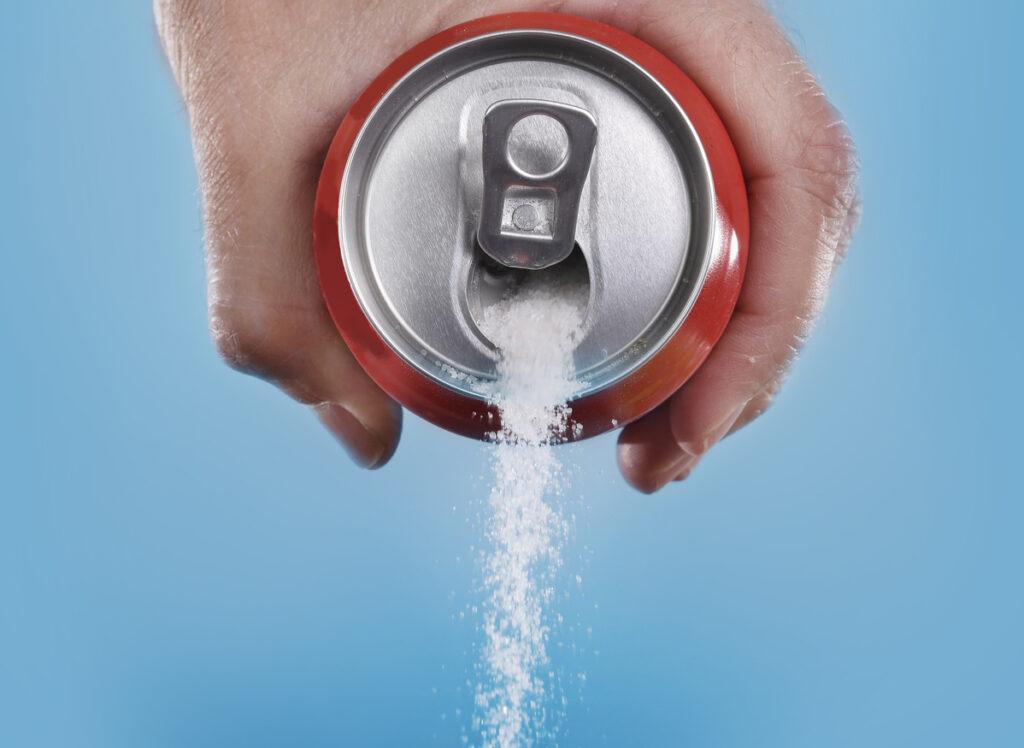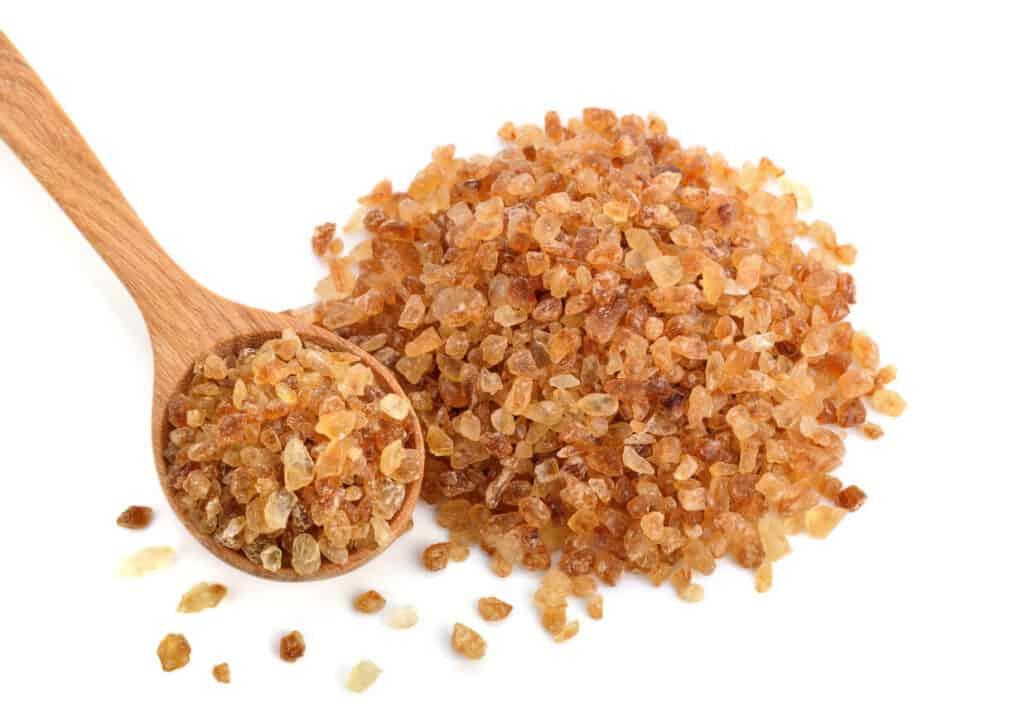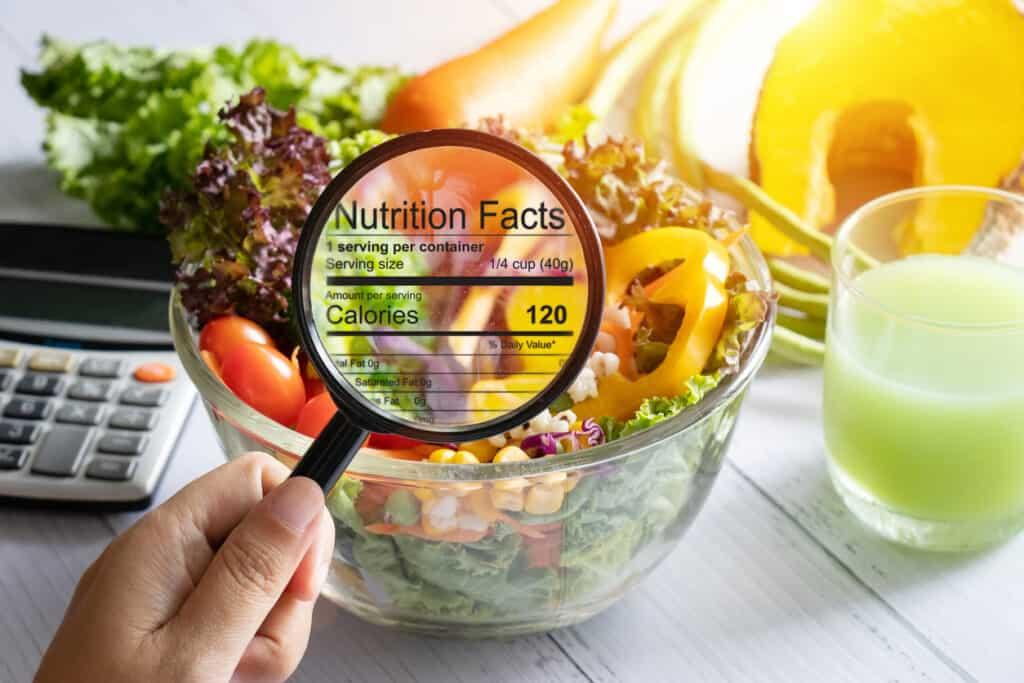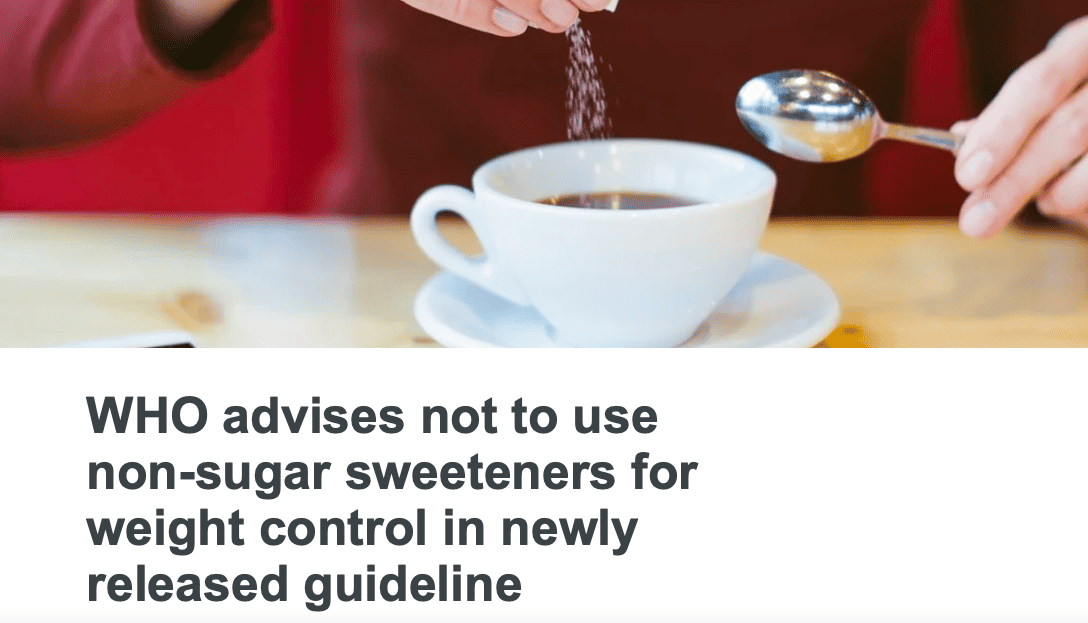Just lately, the World Well being Group (WHO) up to date their tips concerning the usage of non-sugar, or non-nutritive, sweeteners (NSS). I do know lots of people have questions on these tips, particularly as a result of the media has gone wild with them.
What are the WHO tips for NNS?
The WHO panel of specialists reviewed 238 scientific research inspecting well being impacts of synthetic sweeteners (for instance, sucralose) in each adults and youngsters. Of those, 50 have been randomized management trials (RCTs), 97 have been potential cohort research, and 47 have been case management research.
Research particularly assessing results of NSS on people with diabetes weren’t included however extra on that later.
It might appear irrelevant that I’m breaking down the kind of research that the WHO used of their tips, however it’s truly an essential issue that we have to have in mind after we take a look at find out how to interpret the rules for our real-life expertise.
So, what did the rules actually say, and does this new analysis affirm that sweeteners are a poor diet selection? Let’s have a look.
A Reminder About Non-Nutritive Sweeteners
Non-nutritive sweeteners, also called stevia, sucralose, aspartame, and Ace-Okay are generally used, low calorie options to sugar. They are often discovered routinely in weight-reduction plan soda, ultra-processed comfort meals, and in helpful packets to be added to meals throughout or after preparation.
These sweeteners mimic the sweetness of sugar, however aren’t simply digestible or absorbable by people.
Whereas many research have proven that these sweeteners are protected, there’s nonetheless no unanimous consensus among the many scientific neighborhood, and questions proceed to be raised. That is completely high-quality, and all a part of regular scientific dialog and evolution.
As a result of there have been so many research achieved to this point, and the usage of these merchandise is turning into an increasing number of frequent commercially, the WHO felt it was time to replace their tips.
I’ve written about NSS within the type of weight-reduction plan soda, sucralose and intestine well being, NSS and weight achieve, and most cancers danger.

The WHO carried out a really thorough evaluation, together with research from all over the world, utilizing many various kinds of NSS, and in several teams of individuals (wholesome, sickness, and so forth.).
Listed here are the varieties of research that the WHO used of their evaluation:
WHO sweetener tips: randomized managed trials
A RCT is one the place contributors are randomly assigned between two (or extra) teams. One group normally will get an ‘intervention’ – aka the drug or product or way of life program of curiosity, whereas the opposite group will get a ‘management’. Typically the management is nothing, typically it’s a placebo, and typically they get a distinct intervention.
The thought of this randomized course of is to scale back the likelihood that variations between teams are as a consequence of probability, or biases that may happen when choosing sufferers for research.
Whereas RCTs have their points (largely that they’re prolonged and dear), and so they is probably not effectively designed or mimic real-world situations, those which can be achieved effectively are what we think about the gold normal in scientific proof. It’s the closest we are able to come to having the ability to say one ‘intervention’ is healthier than one thing else.
Additional, the WHO’s diet steering knowledgeable advisory group used a meta-analysis to summarize findings. This can be a statistical software to pool information from many various trials in an try to extend the ‘energy’ or certainty of a discovering. When you discover a sample in 50 folks, you might wish to check it in 5000 folks to ensure it’s actual!
The WHO examined a majority of these research to reply the next questions:
1) Can NSS assist with weight reduction/physique fats?
2) Can NSS alter consuming conduct?
What Did They Discover?
Relating to physique weight:
Including NSS to the weight-reduction plan in contrast with a placebo, and including NSS to the weight-reduction plan in contrast with sugars (both NSS changing sugars or each NSS and sugars being added to the weight-reduction plan in separate arms of a trial), each resulted in decreases in physique weight and BMI, with the most important results when NSS have been in contrast with sugars.
In different phrases, changing sugar with NSS resulted in weight reduction.
Consuming Conduct:
Those consuming NSS had considerably decreased day by day vitality consumption (–569 kJ) and day by day sugars consumption (–38.4 g). In subgroup analyses, a discount in vitality consumption was solely noticed when NSS have been in contrast with sugars; vitality consumption was not decreased when NSS have been in contrast with placebo or water.
In different phrases, changing sugar with NSS decreased caloric consumption AND sugar consumption, however when NSS have been in comparison with water vitality consumption was not decreased. Changing sugar with NSS might scale back your calorie consumption, however changing WATER with NSS gained’t make a caloric distinction.
This isn’t precisely a groundbreaking conclusion.
Out of the 238 research that the WHO used, solely 4 of these research appeared on the substitute of sugar-sweetened drinks with NSS-sweetened ones. These confirmed that individuals who drank the weight-reduction plan drinks did lose some weight, however their BMIs weren’t meaningfully modified.
Relating to the length of the RCTs they assessed, “nearly all of RCTs assessing NSS lasted 3 months or much less, and the small quantity that lasted greater than 3 months gave inconsistent outcomes. Of those, just one trial lasted longer than 18 months”.
Not precisely evaluation of long-term results.

One downside with meta-analyses is that the statistical end result you get (NSS are useful or not useful) is barely pretty much as good because the research you set into it. When the RCT’s have limitations, like very quick time durations, these considerations can get misplaced within the headline grabbing message.
It’s additionally essential to notice that the consuming patterns within the RCTs have been usually tightly managed, monitored, supplied with extra assist in the type of teaching or dietitian recommendation, and financially supported. All these elements could make the research not indicative of real-world consuming. You may eat otherwise in the event you had somebody ready for a report (and even rummaging by way of your rubbish to see what you truly ate!).
In the true world, NSS would doubtless be consumed in complicated methods, making them harder to review.
Then again, loads of current information (right here) (right here) (right here) (right here) means that NNS truly do assist with weight reduction when used to exchange sugar (and are protected, too).
WHO sweetener tips: cohort research
The evaluation additionally included cohort research, which are sometimes massive research that observe a bunch of individuals over a time period, and observe what they eat (and different information about them), whereas monitoring outcomes of curiosity, (like weight, illnesses, and so forth.).
These research can typically provide a greater real-world perspective, however can have biases, challenges with information assortment, and different points that make it troublesome to ‘show’ issues. In diet analysis, that is usually the perfect we now have, and are helpful in forming hypotheses about our diets, when taken with a grain of salt.
The cohort research analyzed appeared on the following questions:
1) Does use of NSS improve blood sugar (the best way actual sugar may?)
2) Does NSS use improve the chance of diabetes?
3) Does NSS improve your danger of heart problems (coronary heart illness, stroke, and so forth)?
The reply to a few of these questions, merely put, is possibly.
The research advised that top shoppers of NSS (both as components or in NSS-soda), appeared to have a better danger of creating SOME well being points (like sort 2 diabetes), was increased than low or non-NSS shoppers. Correlation doesn’t equal causation although; it doesn’t imply that NSS essentially brought about the issue.
From the rules:
“Reverse causation means that these already at elevated danger of illness initiated or elevated use of NSS due to their danger standing, somewhat than NSS resulting in elevated danger in in any other case wholesome or low-risk people. In some research, these utilizing NSS had a better prevalence of related danger elements.”
Which means folks at excessive danger (possibly chubby or inactive), or with early diabetes could also be extra prone to be utilizing NSS on the suggestions from docs, media, or their very own perceptions that it’s more healthy. It is probably not that the NSS causes diabetes, however somewhat those that develop diabetes usually tend to have switched, and subsequently report consuming extra. This raises the potential of a statistical ‘lie’.
Whereas there was a statistical affiliation between excessive NSS use and cerebrovascular illness (ie. Stroke), and danger of sort 2 diabetes. Related associations have been NOT discovered with coronary heart illnesses, most cancers, or kidney issues. Curiously, the RCTs did NOT present an affiliation with elevated danger of diabetes, making this difficult to interpret.
Additional, the load loss noticed in RCTs in these utilizing increased NSS weren’t seen in cohort research…So what’s the reality? Are the real-world consuming patterns of the cohort research giving us the reality? Is the managed atmosphere of an RCT giving us the reality? Might there be one thing else occurring?

WHO Sweetener Advices
In any case this, the WHO is advising us to chop down on all sweeteners (together with sugar), each those already current in ultra-processed meals and added by shoppers on the level of consumption. Notice, the WHO omitted recommending any change for people with diabetes, as the usage of NSS may be essential for them to handle the illness.
Nevertheless, once you learn by way of the rule PDF offered on the WHO web site, you’ll be aware the language explaining their advice and supporting data could be very cautious: they state their suggestions are conditional, based mostly on low certainty proof, in some cases, very low certainty proof, and inconsistent associations.
Their backside line on whether or not NSS result in a better danger of dangerous well being results: “the general certainty within the out there proof for an impact of NSS consumption on outcomes in adults was assessed as low.” AKA, take these outcomes with a grain of salt.
Moreover, the WHO concedes that there are analysis gaps recognized needing future analysis in lots of areas together with: “potential long-term results of NSS use on related outcomes in all goal populations, together with “extra sturdy publicity, and efforts to handle reverse causation”, in addition to the consequences of NSS on oral well being, gastrointestinal well being, amongst others. You possibly can learn the lengthy checklist of analysis gaps and additional wants on web page 26 of the rule.
The purpose of that is merely that the WHO acknowledges there are massive gaps within the present analysis, which means we shouldn’t be utilizing this up to date guideline as motive to panic. Those that use NSS to handle their diets in a constructive method can proceed with out feeling disgrace or guilt from information articles or posts on social media.
Are sweeteners unhealthy?
My interpretation is that changing added sugar with NSS could also be useful in decreasing your calorie consumption, however the much less sweeteners – and sugar – consumed, the higher.
The research don’t show causation, though as with different diet analysis, it’s essential to think about when many research level to the identical conclusions. Nonetheless, one single meals class in peoples’ diets – corresponding to sweeteners – doesn’t inform us the entire story about what these persons are additionally consuming.
I believe the sturdy and attention-grabbing WHO analysis sadly doesn’t match the message they despatched to most people by way of the media and has brought about pointless (or disproportionate) panic.
After all, you continue to want the totality of your weight-reduction plan to be different, balanced, and predominantly entire and minimally processed meals. Sure, ultra-processed meals can match, however, if attainable, they need to comprise a comparatively small a part of your total consumption.
Do individuals who eat plenty of sweeteners eat fewer crops and extra saturated fat and ultra-processed meals? Do those that don’t have a excessive consumption of sweeteners even have a weight-reduction plan that’s stuffed with entire meals? Are they extra lively?
Well being is a product of many elements, solely one in all which is weight-reduction plan. Social determinants, genetics, and bodily and way of life actions all play essential roles.
It’s essential to take a look at each new piece of data with a important eye and keep in mind that science is at all times evolving.
Are sweeteners dangerous? So far, we’re nonetheless missing top quality proof that any of the NSS pose hurt if consumed within the quantities they’ve been studied.
My suggestions over time haven’t modified – select whichever sweetener you favor and use as little as attainable. Educate your self to anticipate much less ‘candy.’

